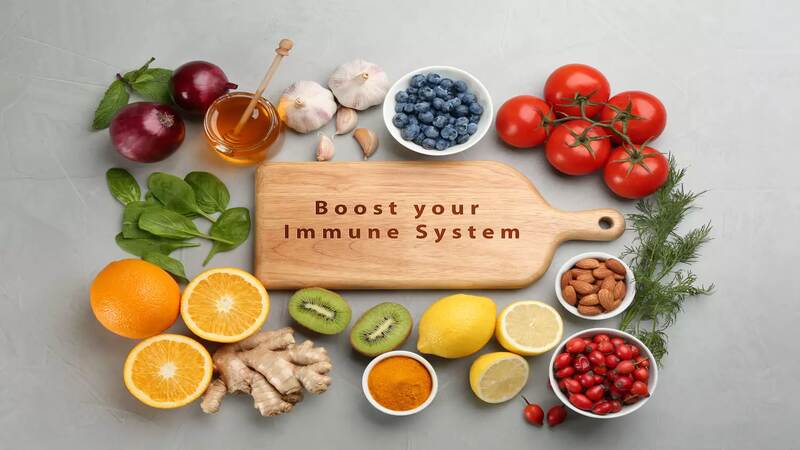
Another school season has just begun! Have your tiny tots started coming home with running noses already? Are you dreading them picking all kinds of infections from fellow school-mates? While there is little you can do to control what your child touches and breathes once she is away from you, you can do a lot to boost her immunity so that her body is strong enough to resist many potential infections. Read on to get a list of everyday foods that you can incorporate into your child’s diet to naturally boost immunity.
10 Everyday Foods that can Help Boost your Child’s Immunity
- Carrots: Carrots are great sources for vitamins and minerals like iron, zinc and copper, but it is specifically rich in Vitamin A. Vitamin A plays a big role in keeping the cells healthy and growing White Blood Cells (WBC). For smaller kids, you can incorporate carrots in their diet in the form of juices and purees (it blends well with apple or banana bases). For bigger kids, you can add carrots to pulao and kichdi. You can also grate carrot and add it to your dosa/idly batter or paratha dough.
- Yoghurt: Many of us wrongly believe that yoghurt / curd causes cold and cough in rainy season. However, if given at room temperature, it is a rich source of probiotics or “good bacteria” which fights bad bacteria in the stomach and keep stomach infections at bay. Plain yoghurt is best, but you can also add fruit purees to it for some flavor (or make smoothies using yoghurt). It is best if you do not add sugar to it to make it appealing – this becomes an unnecessary bad habit for future. Moreover, sugar is known to depress the immune system
- Sweet potatoes: Sweet potatoes are rich in beta-carotene and Vitamin C – both of which toughen up the immune system. Most kids love sweet potatoes as it tastes similar to potatoes, and well, it is sweet as the name suggests! While fries are an easy snack option, it is healthier to bake them rather than fry them
- Garlic and Onions: Similar to yoghurt, both garlic and onions help fight bad bacteria in the stomach, especially one called H.pylori. Another big advantage of these two food items is that you can incorporate them in your daily cooking very easily. It can, however, lead to bad breath – so ensure your child brushes her teeth after the meal
- Tomatoes: Tomatoes are great sources of Vitamin A and C. It also is rich in anti-oxidants. Again, this is another ingredient we can easily incorporate into our child’s diet. It is more beneficial if you develop in them a taste for tomato soup or juice (made without discarding the pulp)
- Guavas (and other vitamin C rich fruits): Many fruits, including guavas, grapefruits, lemons and pineapples, are very rich in vitamin C. And very tasty too! Guavas especially is rich in vitamin C (it has four times the Vitamin C content seen in oranges!). Additionally, guavas also contain vitamin A, anti-oxidants and fibers and have low glycemic index – all of which make it a very healthy super-fruit!
- Nuts: Nuts are very good for your child. Each variety has a different benefit, but overall, nuts are a rich source of energy, vitamins, minerals and anti-oxidants. Encourage your child to eat a handful (with all different varieties) every day. If your little one does not like to eat them as they are, you can make chikki with them, along with dry fruits. For small kids, you can dry roast and powder the nuts, and add them to roti/paratha dough and serve them
- Green & Colorful veggies: There is a reason why our mothers commanded us to “eat our greens” or stuffed them down our throats! Greens, like spinach (palak) and fenugreek (methi leaves) are great sources for vitamins, folate and antioxidants and hence a great way to prevent diseases. Palak can be incorporated in the dals (lentils) you make for your child and methi leaves can be mixed with dough to make yummy methi paratha for the little one. Add as many colors as you can to your child’s plate. Each colored-vegetable has a different dominant nutrient that is great for your child’s immunity and overall health. Add beetroots, yellow capsicum, red peppers, purple eggplants and so on to the platter. A mixed vegetable soup every night is a good idea!
- Eggs: Eggs are an excellent source of protein and iron, alongwith the fat soluble vitamin A that is essential for the immune system. The antioxidant properties of vitamin A Keeps the cells that ward off infections working good. Eggs can be easily included in your kids’ diet as breakfast or snack item
- Salmon: If your child is non-vegetarian, then options are more! Salmons, for instance, contains Omega-3 fatty acids, which equip your child’s phagocytes (a type of cell within our bodies that absorbs bacteria) to fight bacteria better. Lean red meat is an excellent source of iron. Shellfish, including oysters, mussels and scallops, are great sources of zinc, which makes sure that the white blood cells are doing a great job by fighting infections
The key to boost your child’s immunity is simple. Ensure your child has healthy meals – rich in Vitamin A, C and antioxidants – the nutrients with super-power to boost the immune system. In addition to diet, ensure that your child get proper sleep and good exercise. Also ensure that the child maintains personal hygiene (e.g.: making washing hands a habit, carrying wet wipes during trips to play area etc.)and is growing in a healthy, home environment free of stress.
And do not fret about occasional colds and coughs – the antibodies that your child’s body makes during a cold and cough stint will help her body resist future attacks! So in a way, every infection boosts up her immunity a little bit more.

